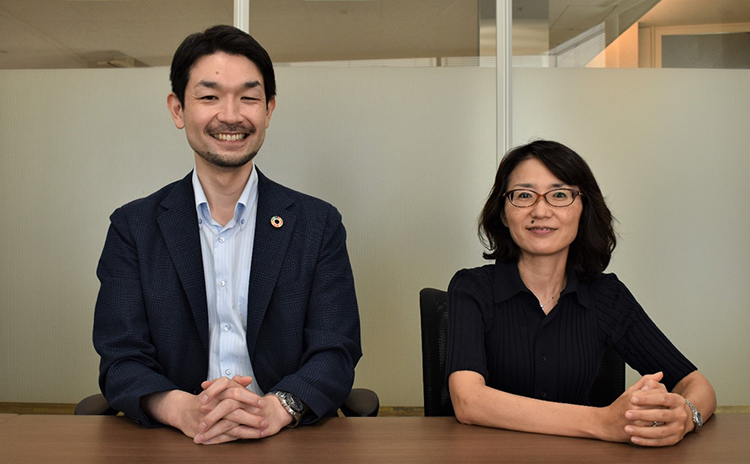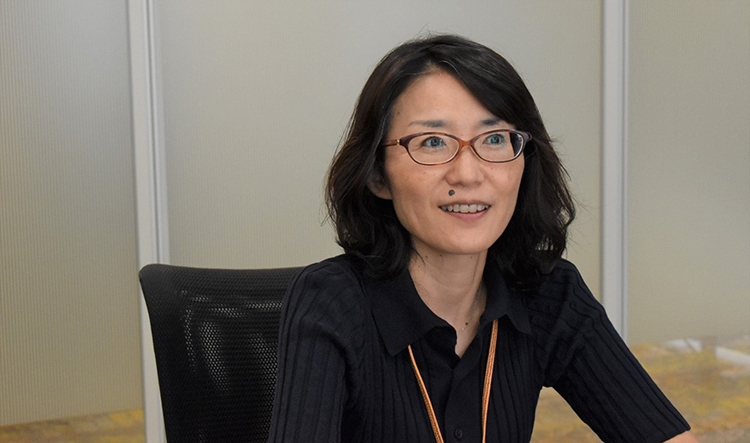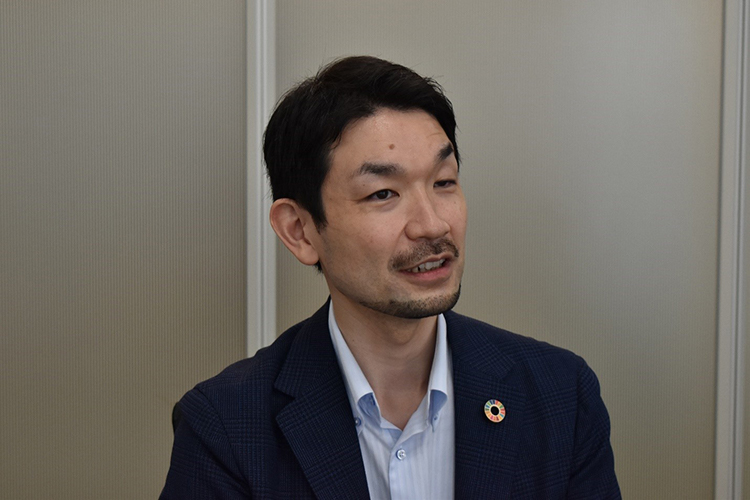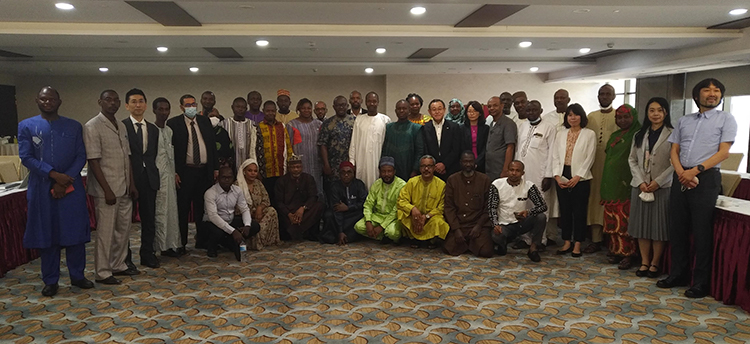Towards TICAD8: Building Human Security in the Sahel for Peace
August 16, 2022
The Sahel region in Africa is a semi-arid 5,000-kilometer belt along the southern edge of the Sahara Desert. The region, which covers Mauritania, Senegal, Mali, Burkina Faso, Niger, Nigeria, Cameroon, Chad, is one of the most poverty-stricken and conflict-ridden on the continent.
The Japan International Cooperation Agency (JICA) is focusing on uplifting communities and building human security in Sahel, which faces such threats as climate change, insurgencies, and organized crime.

Left: Mr. MUROTANI Ryutaro, senior director in the Office for Peacebuilding,
Governance and Peacebuilding Department at the Japan International Cooperation Agency
Right: Ms. DOHI Yuko, senior advisor in governance and peacebuilding,
Governance and Peacebuilding Department at the Japan International Cooperation Agency
"Peacebuilding aims to eliminate conflict and violence and prevent their recurrence. To this end, JICA aims to build resilience and realize human security by strengthening trust between authorities and local communities as well as within local communities," says MUROTANI Ryutaro, senior director in the Office for Peacebuilding, Governance and Peacebuilding Department at JICA.
His colleague DOHI Yuko, senior advisor in governance and peacebuilding at JICA, adds that it necessitates a holistic approach - one which the TICAD forum will enable as it is a platform for Japan and international organizations to gather and share information and ideas.
They note that while improving security is an immediate concern - JICA has worked on capacity development of police officers with the United Nations Peacekeeping Operations to this end in Mali - a more sustainable strategy would be to enable governments and communities to enhance local governance and community resilience in order to realize human security.
Downward spiral
The growing threat to the region, which is already suffering from famines and droughts due to increasingly unpredictable weather, is climate change. United Nations High Commissioner for Refugees (UNHCR) data (external link) shows that temperatures in the Sahel are likely to rise by 2 to 4.3 degrees Celsius by 2080, as compared to 1876 levels.
Mr. Murotani also points to how Lake Chad, which used to provide water to more than 30 million people, has shrunk by 90 per cent since the 1960s.
"Poverty is at extremely high levels," Ms. Dohi adds, noting that the very limited resources of water and fertile land are breeding grounds for competition, anxiety, and tension, especially when one's very survival is at stake.

The Sahel region, particularly Mauritania, Mali, Burkina Faso, Niger, and Chad, is thus fertile ground for violent conflicts and extremisms, the two experts say.
This is even further exacerbated if governance is weak, especially in remote and sparsely-populated areas far from the metropolitan capital region.
The most impoverished communities, the experts say, are also the ones that have the worst access to help, let alone basic services such as water, education, and infrastructure. To make matters worse, there are also not enough jobs to go around.
All this can foster distrust in both the local and central governments, which have very little presence in the remote areas. Add to those perceptions of corruption and a history of abuses among the leaders, and it is evident how extremists and organized crime groups that prey on the vulnerable can swoop in, Mr. Murotani says.

"Such groups may lure people into joining by promising protection for their family or property including livestock," Mr. Murotani says. The extremist groups prey on ordinary people who are vulnerable, extorting money in the guise of giving them protection and taking advantage of their distrust of the government.
Recognizing this, it is important for JICA to cooperate in ways that strengthen the capacity of local administration, community collaboration, and confidence-building in government. For example, initiatives that involve community collaboration such as School for All, in which schools are run and supervised by the local community. In cases like this, where governmental supports are limited and scarce, self-management by local communities is indispensable.
Crucial problem
It is easy for the world to be dismissive of the problems faced by the Sahel region, given how far away these issues seem, the two experts say. But they warn that the Sahel deserves far more attention than it is receiving, given the interconnectedness of the world.
The Sahel region is proof of how regions that are hardest-hit by climate change can succumb to wars and conflicts, Mr. Murotani says, adding that terror groups that are broadening their bases may also take root in the Sahel given its poor security environment.
"It is thus in the world's interest to ensure the stability of West Africa," he says, given the spillover effect to the rest of the world, adding that "TICAD8 is an opportunity for countries in the region to sit together with international development partners and share ideas to align our various efforts in the region toward building resilient states and societies.
Japan, with its own history in post-war and post-disaster reconstruction, has been sharing its experience with the Sahel region, adds Ms. Dohi.
Among other things, it is conducting a survey with the G5 Sahel group of countries - Burkina Faso, Chad, Mali, Mauritania, and Niger - to get a better grasp of their problems to determine where it would be best to render assistance.

A picture taken at a seminar on sharing the experience of the Sahel group of countries in 2022,
which is the following online seminar of 2021.
In June 2021, JICA also organized an online seminar through which it intended to share with participants the experiences and knowledge of Japanese local governments, regarding their roles and experiences, including the reconstruction of Hiroshima after WWII, and the reconstruction efforts following the March 11, 2011 Great East Japan Earthquake. In particular, they demonstrated the role of government officials and the importance of shared vision towards reconstruction between government and community as well as leadership in implementing the vision.
Mr. Murotani says that there is "a lot more in common than expected" in the challenges faced by the nations in the Sahel region. Japan is thus able to lead discussions and create a platform for each country to share their goals, while helping communities to regain trust in their governments.
Referring to JICA's assets in the West Africa region, Ms. Dohi says, "JICA's cooperation programs have been country-based. But since the region is faced with common challenges and peer-learning is very effective, we would like to enhance the regional approach by connecting the Sahel Region with the experiences in West Africa and with the experiences in Japan."

